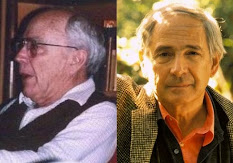Friday, July 28, 2023
Stove and Searle on the rhetorical subversion of common sense
Monday, July 24, 2023
A comment on the Lofton affair
For any readers of my recent reply to Michael Lofton who have not been following events at Twitter and YouTube, Lofton has, over the course of the last few days, posted a series of tweets at the former and a series of videos at the latter strongly taking exception to my article. I have to say that I am mystified at the number and vehemence of these responses. But Lofton seems especially angry about my characterization of his initial video as “defamatory” and “libel.” What follows are some brief remarks that I hope will put his mind at ease and allow us to move on from this affair.
Friday, July 21, 2023
Lofton’s YouTube straw man (Updated)
Wednesday, July 19, 2023
What is classical theism?
Tuesday, July 18, 2023
Archbishop Fernandez’s clarification
Friday, July 14, 2023
Cardinal Newman, Archbishop Fernandez, and the “suspended Magisterium” thesis
The body of the Episcopate was unfaithful to its commission, while the body of the laity was faithful to its baptism… at one time the pope, at other times a patriarchal, metropolitan, or other great see, at other times general councils, said what they should not have said, or did what obscured and compromised revealed truth; while, on the other hand, it was the Christian people, who, under Providence, were the ecclesiastical strength of Athanasius, Hilary, Eusebius of Vercellae, and other great solitary confessors, who would have failed without them.






